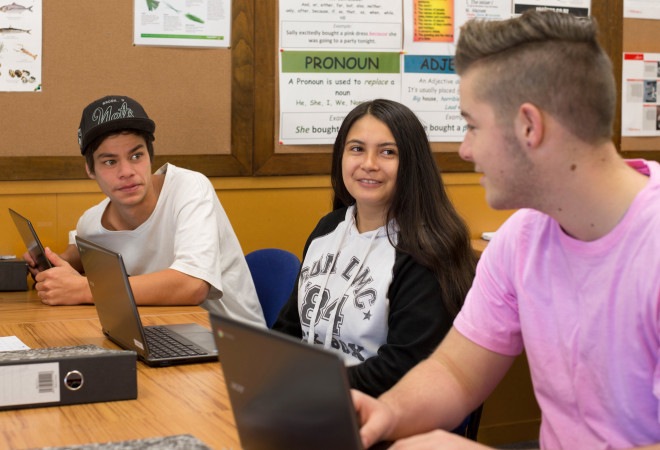
Youth guarantee pathways and profiles project
Status
Completed: 9 September 2019
Project Details
A four-year project that explored the experiences of young people on Youth Guarantee Fees-Free training programmes and their education providers.
Aims:
The aim of this project was to find out more about the experiences of learners on Youth Guarantee Fees-Free training programmes and their education providers for the purpose of improving educational provision and learner outcomes.
Methodology:
The qualitative and quantitative methodology of the project included:
- surveys
- data collection and analysis
- interviews
- focus groups.
Team
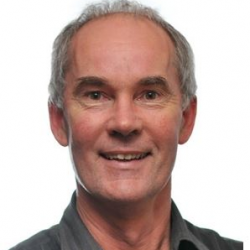
Doug Reid
Project Contact Leader
Chief Executive, Community Colleges New Zealand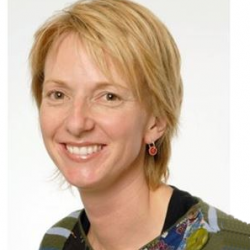
Dr Ria Schroder
Project Academic Manager
The Collaborative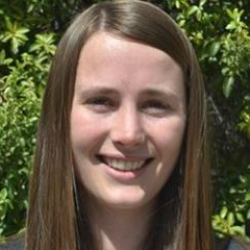
Adelaide Reid
Researcher
The Collaborative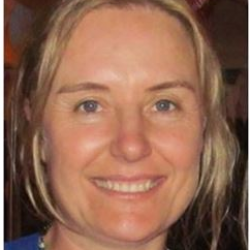
Sarah McKay
Researcher
The Collaborative.Status
Funding
$315,110.00 (excl GST)
Key Findings
Interim findings during Fees-Free programmes
Findings from interviews with learners
- Support from others helped participants plan, feel motivated and confident and overcome challenges.
- Positive relationships improved learning, achievement and provided access to support.
- Opportunities for self management and responsibility increased engagement and personal development.
- Positive learning experiences increased self-confidence and motivation and skill development.
Findings from focus groups with staff
- Training helped young people gain qualifications and experience personal and educational success.
- Support and positive relationships led to engagement.
- The structure of Youth Guarantee Fees-Free training needed improvement.
- It needed to better align with the needs of learners and the Youth Guarantee framework.
Findings related to what works
- Support from whānau and friends, education providers and other support services worked well.
- Training helped young people gain skills for education and employment, as well as confidence.
Findings related to challenges
- Accessing support and knowledge about education and employment was challenging for some.
- Finding employment was a challenge for others.
- Some participants identified a lack of motivation, confidence, time and self-management as barriers
Interim findings after Fees-Free programmes
Findings related to transitions
- Participants pursued diverse pathways after departing their Youth Guarantee Fees-Free programmes. Most participants were engaged in some form of education, training, or employment, and a number had changed direction at least once.
- Participants’ experiences of transition were iterative rather than linear.
- Participants reported that support from others, their skills and qualifications, and their own motivation were the main elements that helped, or would help, them succeed.
- Findings are consistent with the literature on youth transitions and the impact of educational interventions for early school leavers. According to the literature, access to ongoing individualised support, and caring, respectful relationships throughout transitions can provide a secure base from which young people can develop themselves and their skills, and consider suitable pathways. Project participants’ experiences echo this.
Main themes in the education, employment, and transition experiences of participants
- Self-development
Self-development was about growth, change, and ensuring future success. It involved gaining practical skills, changes in mind-set and behaviours, and academic achievement. Participants said the confidence gained from self-development created positive momentum for continued development, which was an iterative and self-reinforcing process. - Control
Participants showed desire to have control over themselves, their choices, and decisions which involved or affected them. Participants used control to gain and maintain independence, to access opportunities, and to reject situations which undermined their sense of self-efficacy or identity. As participants experienced success they became more proactive in setting their future direction and reported that self-development allowed them to take control as it increased their confidence and gave them the skills they needed. - Fit
Two types of fit were identified: physical fit, where participants felt accepted and valued, and felt confident and competent when carrying out tasks; and alignment, where participants felt alignment between their current activity and planned path, and how they viewed themselves now and in the future. Finding fit was a central part of participants’ education, employment, and transition experiences. Fit provided stability which allowed participants to focus on self-development and explore their future options. - Networks and support
Networks and support, particularly whānau and friends, were a strong influence on participants’ education, employment, and transition experiences and their future decisions. Two types of support were identified: active support, where participants were assisted in tasks such as creating a CV; and moral support. Networks were particularly important when moving between activities or assessing options for their future. Participants who continued to do well after leaving the programme often had access to ongoing support from whānau and friends and experienced positive relationships with employers, colleagues, or staff at other education providers. - Direction and stability
Participants reported that having stability and a sense of direction supported their transitions. In many participants’ experience, direction and stability were closely linked: stability allowed them to focus on finding direction; and having direction provided stability as it guided their choices. Over the course of their transitions, most participants gained stability from a variety of sources, and changed direction at least once. These changes were closely connected to changes in fit, self-development, and identity development.
Findings related to challenges
- Some participants reported challenges during their transitions. The types of challenges and their impact varied depending on the individual context and the degree of support available.
- Some participants were struggling to find a suitable pathway or access their desired path. Low self-confidence, lack of networks, information, and appropriate support, and difficulty identifying, applying, and developing the necessary skills were contributing factors.
- Some participants continued to struggle with drugs and alcohol, transience, unstable living arrangements, physical and mental health, and crime, although most reported that they felt better equipped to manage these after their Fees-Free programmes.
Findings related to policy
- Policymakers and young people clearly saw the topic of 'transitions' differently.
- Young people, for example, saw Youth Guarantee Fees-Free training as part of a process of self-development rather than as a one-off event that determined the young person's future direction. This was reinforced by their experiences after transitioning out of their Fees-Free programmes.
- Youth Guarantee policy is informed by a linear view of transition, while participants’ experiences of transition were iterative.
- This finding, combined with the complexity of the challenges faced by participants, indicates that it may be unrealistic to expect one-off interventions such as Youth Guarantee Fees-Free training to produce sustained positive outcomes.
Key Recommendations
At this stage it is not appropriate to make recommendations about what works best for Youth Guarantee Fees-Free students. However the following five key messages should be considered:
- Many of the factors discussed in the report are interconnected and the impact they have on young peoples’ lives, experiences, and decisions are complex and varied.
- Consistent, responsive support is extremely important. Support needs to be responsive to the diverse needs of young people. This may involve significant pastoral care.
- Qualifications are important to young people, but pastoral care and ongoing support is equally important and is seen to be essential to their development.
- Participants’ skills and capacity for self-development maximise the value of their qualifications.
- Transitions in education and employment are iterative processes rather than being linear pathways.
This report gathered Youth Guarantee learners’ perspectives to provide the participating YGFF providers and the sector with information on their learners, which can be used to improve provision, ensure that learner needs are met and that positive outcomes are sustained beyond YGFF.
- 3 March 2017
This report provides an update of the main themes in the education, employment and transitions experiences of participants which were first discussed in the Interim Report. These themes have been identified from five rounds of interviews carried out with young people from 2015 to 2017.
- 15 August 2018
This report provides progress on the project and the findings to date.
- 15 August 2018
This is the final report of the Youth Guarantee Pathways and Profiles Project which began in 2015. The project explored the value of Youth Guarantee Fees Free for young people and whether it contributes to sustainable outcomes.
- 1 September 2019
A summary which outlines the key findings, the impact and outputs of the youth guarantee pathways and profiles project.
- 23 August 2019
Listen to the results of this four-year project. An exploration into the experiences of young people on Youth Guarantee fees-free training programmes and their education providers in New Zealand.
- 5 November 2019